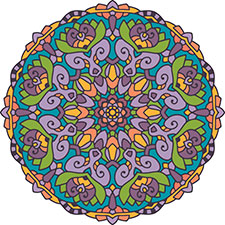Boundaries in Relationships
 Learning how to establish good boundaries in relationships is a common issue in relationship counseling. In general, those of us who have good boundaries typically do better in our professional and personal lives.
Learning how to establish good boundaries in relationships is a common issue in relationship counseling. In general, those of us who have good boundaries typically do better in our professional and personal lives.
Still, many of us could probably use a little polishing up on our boundary maintenance skills. This is primarily due to the fact that a percentage of people are going to continue to cross what we believe our reasonable boundaries.
Boundaries is a word used a lot by counselors and therapists in relationship counseling to describe aspect of our interactions with others, including our relationship with ourselves.
Relationship Counseling for Boundaries
Learning to set healthy personal boundaries is a common topic in therapy because many of us have a hard time saying “no” when someone else asks something from us.
By learning what are appropriate boundaries in relationships, we can improve our self-concept and self-esteem. Maintaining good boundaries is our way of communicating to others that we have self-respect, self-worth, and will not allow others to define us. It also tells others how they can treat us in relationship.
When we exercise good boundaries in relationships, we set physical, emotional and mental limits we establish to protect ourselves from being manipulated, used, or violated by others. Therapists will tell you that it is not possible to enjoy healthy relationships without the existence of personal boundaries, or without our willingness to communicate them directly and honestly with others.
Boundaries reflect our core values and belief systems, as well as our respect for ourselves and our need for safety and protection. Boundaries mean being able to say no and mean it, or saying yes and meaning it. This include setting contracts with others, including authority figures, friends, and family.
Strong personal boundaries in relationships are reflected in many ways and especially when we can easily set limits to protect ourselves. Some people with poor boundaries depend on their partners’ identity for their self-worth.
Enmeshment and Triangulation in Relationships
 Being raised in a family with poor boundaries, such as homes with addiction or abuse, is one common reason why someone develops bad boundaries. In psychological terms, some families are create styles of enmeshment or triangulation that translate to poor boundaries between family members.
Being raised in a family with poor boundaries, such as homes with addiction or abuse, is one common reason why someone develops bad boundaries. In psychological terms, some families are create styles of enmeshment or triangulation that translate to poor boundaries between family members.
In some families, there is so much control and rigidity that doing something outside the range of typical family behaviors is discouraged. When this happens in family, members are not allowed to change.
People also develop poor boundaries with physical traumas from events such as accident, surgeries, and painful procedures. Additionally, poor boundaries are sometimes a function of ignorance. For example, if a person has not been exposed to good role models it is understandably difficult for them to know what is appropriate and what isn’t.
Relationship Counseling Helps
In relationship counseling, we are reminded that we have a right to personal boundaries and that we need to take responsibility for how we allow others to treat us.
Without boundaries to protect us, we can look for our confidence and worth from others. To avoid this situation, set clear and decisive limits so that others will respect them, then be willing to do whatever it takes to enforce them.
Recognize that other people’s needs and feelings are not more important than your own. Many women have traditionally thought that the needs of their husbands and children are more important than their own. This can actually destroy healthy communication in the family. A better approach would be helping family members to engage as take care of yourself.

San Jose Relationship Counseling in the Silicon Valley including San Jose, Los Gatos, Saratoga, Sunnyvale, Campbell, Cupertino, Los Altos, Mountain View, and Santa Clara.



